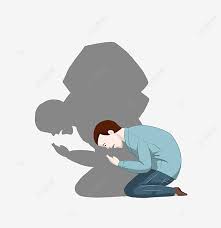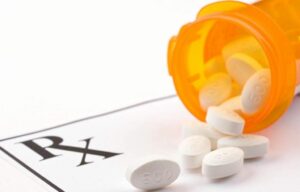Endogenous depression is a type of depression that is not caused by external factors. It occurs when there is something wrong with the body’s natural chemical balance. This can be a very difficult type of depression to treat because it is not always clear what is causing the imbalance. In this blog post, we will discuss endogenous depression in more detail and provide some tips for how to cope with it.
Contents
What Is Endogenous Depression?
 Endogenous depression refers to a major depressive disorder that is not caused by any external factors. It is thought to be the result of a chemical imbalance in the brain, although the exact cause is unknown. It is more severe and lasts longer than other types of depression. And it is often resistant to treatment.
Endogenous depression refers to a major depressive disorder that is not caused by any external factors. It is thought to be the result of a chemical imbalance in the brain, although the exact cause is unknown. It is more severe and lasts longer than other types of depression. And it is often resistant to treatment.
Moreover, the prevalence of this disorder is much higher in people who have a family history of depression. Studies have found that about 7% of the general population has endogenous depression. But in people with a family history of depression, the rate is closer to 30%.
In fact, this form of depression is so severe that it was once known as melancholia. And it was thought to be incurable. Thankfully, that is no longer the case. With proper treatment, people with endogenous depression can get better. Also, it is important to note that this disorder can occur at any age. But it most often starts in adulthood.
If you think you might have endogenous depression, it’s important to see a doctor or mental health professional right away. They can help you get the treatment you need to feel better.
How Endogenous Differs From Exogenous Depression?
Endogenous and exogenous depression are two different types of the same disorder. Endogenous depression is characterized by a deep feeling of sadness and despair that lasts for weeks or even months. Researchers are mainly used to define endogenous depression in order to study it. But the term is also used in some cases of clinical depression.
- Endogenous depression is thought to be caused by a combination of genetic and environmental factors.
- On the other hand, exogenous depression is brought on by external circumstances. Such as the death of a loved one or the loss of a job.
- Exogenous depression is often less severe and easier to treat than endogenous depression.
The main difference between the two types of depression is their cause. Even so, mental health professionals are now using different ways to diagnose both conditions and treat both types of depression.
However, it is important to keep in mind that depression is a complex mental disorder. And its symptoms can vary from person to person. So, if you think you are suffering from depression, it is best to seek professional help. Only a qualified mental health professional can give you an accurate diagnosis. And prescribe the most effective treatment for your particular case.
What Are The Symptoms Of Endogenous Depression?
The symptoms of endogenous depression can be divided into two groups: physical and mental.
Physical Symptoms
 There are a number of physical symptoms associated with endogenous depression, including:
There are a number of physical symptoms associated with endogenous depression, including:
- Fatigue
- Loss of appetite or increased appetite
- Weight loss or gain
- Insomnia or hypersomnia
- Psychomotor retardation or agitation
- Slow thinking and movement
- Lack of physical activities due to low energy
Mental Symptoms
There are also a number of mental symptoms associated with endogenous depression, including:
- Anhedonia is the inability to experience pleasure from activities that used to be enjoyable
- Apathy, loss of interest in almost all activities
- Concentration problems
- Memory problems
- Guilt or feelings of worthlessness and hopelessness
- Low self-esteem
- Social withdrawal
These are some of the most common symptoms associated with endogenous depression. However, it is important to remember that not everyone experiences all of these symptoms. And that the severity of the symptoms can vary from person to person.
If you are concerned that you or someone you know may be suffering from endogenous depression. It is important to speak to a mental health professional for a proper diagnosis.
What Causes Endogenous Depression?
The causes of such conditions are not fully understood. Researchers have found that changes in certain chemicals in the brain may play a role. Other possible causes include:
- A family history of depression
- Certain medical conditions such as an underactive thyroid gland or Parkinson’s disease
- Certain medications such as corticosteroids or interferon
It is important to note that not everyone who experiences these risk factors will develop endogenous depression. Moreover, many people who do not have any of these risk factors may still experience the condition.
Endogenous depression is a serious condition that can significantly impact a person’s quality of life. And, the causes of the condition are not fully understood. If you or someone you know is struggling with endogenous depression, it is important to seek professional help. There are many resources available to those struggling with depression. And treatment can make a big difference.
How Is Endogenous Depression Diagnosed?
 The diagnosis of mental health conditions like endogenous depression is usually made by a psychiatrist. This type of doctor is specially trained in diagnosing and treating mental health conditions. They will often do a full assessment with questions.
The diagnosis of mental health conditions like endogenous depression is usually made by a psychiatrist. This type of doctor is specially trained in diagnosing and treating mental health conditions. They will often do a full assessment with questions.
After the assessment, the psychiatrist will likely diagnose you with a specific type of depression. The process of making a diagnosis can sometimes be tricky, and it may take some time to get it right.
Your mental health professional may ask you a set of questions to get an idea of your symptoms and how they’re impacting your life. These questions may be about:
- Mood
- Sleep patterns
- Appetite
- Energy levels
- Concentration and memory
- Thoughts of harming yourself or others
Your psychiatrist may also want to rule out any physical health conditions that could be causing your symptoms. To do this, they may:
- Do a physical exam
- Order lab tests
Once the psychiatrist has all of this information, they can make a diagnosis. If you’re diagnosed with endogenous depression. Then, your mental health professional will work with you to make a treatment plan.
How To Treat It?
The treatment option for endogenous depression may vary depending on the person. However, some common treatments for this type of depression include psychotherapy and medication. In some cases, a combination of both might be necessary in order to see an improvement in symptoms.
So, let’s discuss each one a little further.
Psychotherapy
This type of treatment is often called “talk therapy” because it involves talking about your thoughts, feelings, and experiences with a therapist. The goal is to help you understand your depression and develop healthy coping skills. The major aim of this treatment is to help you identify and change negative thinking and behavior patterns.
Cognitive-behavioral therapy (CBT) is one type of psychotherapy that has been shown to be effective in treating depression. CBT focuses on helping you understand how your thoughts, emotions, and behaviors are connected. It also teaches you how to develop positive coping skills and make positive changes in your life.
You must try Mantra Care, it provides one of the most convenient and affordable ways to get access to quality mental health care. Book your free consultation today!
Medication
 Depression is often treated with medication, but it’s important to keep in mind that medication is not a cure for depression. It can help alleviate some of the symptoms, but it’s not a cure. In addition, medication can have side effects, so it’s important to talk to your doctor about whether or not the medication is right for you.
Depression is often treated with medication, but it’s important to keep in mind that medication is not a cure for depression. It can help alleviate some of the symptoms, but it’s not a cure. In addition, medication can have side effects, so it’s important to talk to your doctor about whether or not the medication is right for you.
However, here are some examples of the medications:
- Tricyclic antidepressants
- Selective serotonin reuptake inhibitors (SSRIs)
- Monoamine oxidase inhibitors (MAOIs)
- Atypical antidepressants
It is essential to discuss all of your options for treatment with your doctor to make sure that you are making the best decision for your health. Because, with medications, there are often pros and cons. So, it is not necessarily what works for one person that may work for you.
Self-Help Tips
This is often an essential part of treatment. If you’re feeling depressed, it can be hard to motivate yourself to do anything. But even small things can help.
- Start with something easy, like taking a shower or getting dressed.
- Set simple goals, like doing laundry or making your bed.
- Exercise, even if it’s just going for a walk.
- Eat healthy foods.
- Spend time with friends or family.
- Do something you enjoy, like reading or watching a movie.
These things won’t make your depression go away, but they can help you feel better. If you’re having trouble doing them, talk to your doctor or therapist. They can help you make a plan.
You might also want to try:
- Put yourself in a positive mood by listening to upbeat music, reading an inspiring book, or looking at pictures that make you happy.
- Challenge your negative thoughts. When you’re feeling depressed, it’s easy to think things like “I’m such a failure” or “I’ll never be happy.” But these thoughts aren’t true.
- Talk to someone who will understand and can offer support, whether it’s a friend, therapist, or hotline.
- Write down your thoughts in a journal.
Conclusion
To conclude, endogenous depression is a serious mental illness that can be difficult to treat. However, with the right treatment plan, it is possible to manage the condition and improve your quality of life. If you think you may be suffering from endogenous depression. Then, speak to a mental health professional for an accurate diagnosis and treatment recommendations.
This disorder is not something that you have to face alone. There are many resources available to help you on your journey to recovery. You just need to reach out and ask for help.
For more information, please contact MantraCare. Depression is a mental illness characterized by persistent feelings of sadness, hopelessness, and loss of interest in daily activities. If you have any queries regarding Online Depression Counseling experienced therapists at MantraCare can help: Book a trial Depression Therapy session


